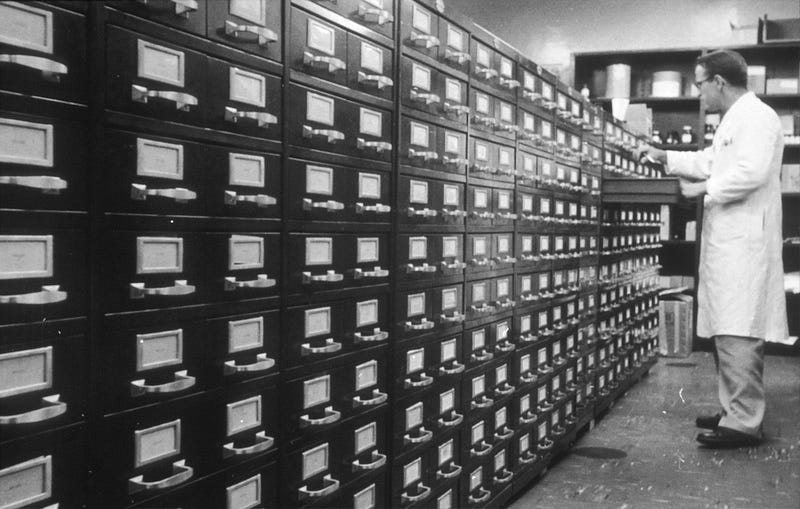In this part of the book, Dr. McCloskey is continuing to demonstrate a positive shift in attitude towards the bourgeois, esteeming the virtues that will make the coming age of commerce possible.
She is now going to write four (4!) chapters about Adam Smith so get ready for a deep dive.
Our view of Adam Smith today is one dimensional, according to McCloskey. We see him valuing the virtue of prudence above all other things, when in fact, she argues he, like Jane Austen in the previous chapter, was arguing for an ethical prudence.
Ethical Prudence
If someone has heard of Adam Smith, the book they most likely are familiar with is The Wealth of Nations.
It was Smith’s intention in almost all of his writings published and unpublished to develop an ethic for a commercial society…(p. 173)
McCloskey says today we have distilled his full message into a prudence only message: if benefits outweigh the costs, then do it. But the benefits and costs are monetarily measured, leaving out other important virtues.
Economists have often Thatcherized Smith in this way, and read into the single throwaway line about “the invisible hand” an entire economistic, prudence-only, Benthamite philosophy: “Markets are always efficient,” the economists declare with boyish confidence, “so they provide a model for all of our social life.” Always. Sell the children. (p. 173)
McCloskey is sardonically pointing out that if we weighed children by their costs and benefits, it could be argued selling them would be the prudent option. Clearly, we do not operate on prudence alone.
Smith did not just write the one book. And, as McCloskey observed above, the Invisible Hand was just a minor idea in the The Wealth of Nations.
To understand Smith, we need to also consider his first book, The Theory of Moral Sentiments. McCloskey includes the first sentence from that book.
However selfish man may be supposed, there are evidently some principles in his nature, which interest him in the fortune of others, and render their happiness necessary to him, though they derive nothing from it except the pleasure of seeing it. (p. 174)
That does not sound like the Rational Man that makes up the basis of much of economics, adding up the costs and benefits and taking up an action up to the point where marginal benefits are not less than marginal costs. Or, it could if we were more careful about which costs and benefits are included.
Externalities like pollution occur when, for example, a business dumps chemicals in the river seemingly without cost. That is, their production process results in these leftover chemicals they want to get rid of, and dumping it in the river does not show up in their profit calculation.
If prudence is our only concern, then dump away! But if you consider justice (what we owe to others) as an additional principle concern, then ruining a water supply others use would be costly. And wrong.
McCloskey says Adam Smith is arguing for a commercial ethic that includes prudence, justice and temperance (moderation in all things).
Temperance would halt conspicuous consumption and check the incentives to amass wealth in the hands of the few. Shows like “Lifestyles of the Rich and Famous,” or more recently, “Cribs,” would be abhorrent to a society that values temperance.
Conclusion
With more discussion of Adam Smith to come, we can already see that his views of what is an ethical business world is quite different than what is often ascribed to him.
Esteeming prudence was an attitude shift that was needed to allow the rise of the bourgeois. But Smith knew that prudence alone would lead to things like polluted rivers and extreme income inequality.
Combining the virtue of prudence with justice and temperance would still allow the Bourgeois Deal to develop but only in a way that would check the worst instincts of the bourgeois.
He was placing positive value on these virtues but not on the bourgeois people themselves. They were still people with the same selfish tendencies we all should struggle against.
As bourgeois businessmen gained economic success, the tendency was to turn to government for monopoly protections, special favors, and tariffs. As McCloskey notes, “Such protection of existing interests from creative destruction was anciently usual.” (p. 175)
Not only do we need to value an ethical prudence to set the bourgeois free to pursue trade-tested betterments, but as Adam Smith knew, we also need to check their bad behavior by esteeming justice and temperance.
Reference: McCloskey, Deirdre Nansen, 2016. “Adam Smith Exhibits Bourgeois Theory at its Ethical Best,” Chapter 19 of Bourgeois Equality, The University of Chicago Press.




